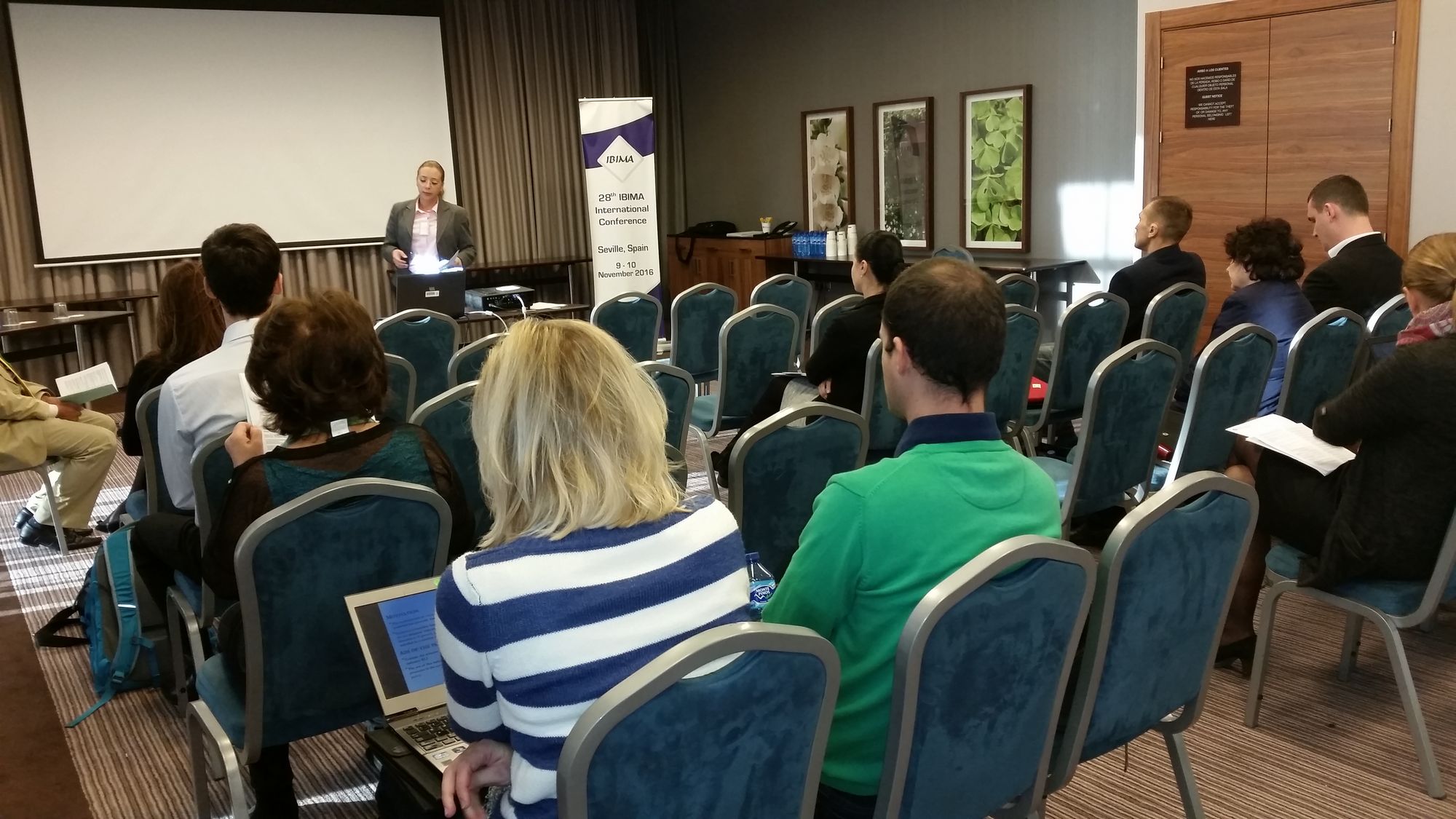
Researcher Presenting Paper in 28th IBIMA Conference
Academic conferences are an opportunity for researchers, academics and non-academics, to present the results of their research efforts in front of academicians and professionals in a certain field and discuss their work or learn about the most recent findings in that field.
After conferences presentations that usually take between ten to fifteen minutes, presenters discuss with audience. These discussions are what differentiates these active academic conferences.
They are a great opportunity for the presenter to defend research work in front of experts, get their feedback, and exchange ideas. And this is what gives insights into the field and can open new channels for more research in the future.
Above research presentation and discussion, academic conferences are great opportunities for networking and building new connections that may lead to rich collaborations, and there are always chances of the founding of new projects.
Academic conferences cover all research disciples. Some of these events narrow the circle of attendees and focus on small research topics, while others are broader to include different branches of a research field.
Some conferences are private and attended only by university scholars, but others are open to all researchers, whether they belong to the university or they are practitioners doing research in that field.
When you attend a conference for the first time, certainly it will be a special and bracing experience. In addition to academic benefits for your research, it will strengthen your presentation skills and take your career one more step forward.
To make conference attendance richer, it is always advised to attend as many sessions as possible, even those that are a bit away from your research area. Definitely, it is a learning opportunity and a prospect of new meetings.
In addition to presenting research in front of peers and discussing it, most academic conferences publish papers in the form of proceedings sent to libraries and indexers that deliver to large academic researchers worldwide.
Ex: Researcher presenting at the 34th IBIMA Conference
For decades, there was only the option to attend conferences in person. But because of difficulties some researchers find in attending conferences, organizers thought of alternatives to help overcome such obstacles.
Some publishers initiated remote presentations especially with the expansion of the internet and new technologies. Others gave chance for academicians to publish their research within the proceedings without having to physically attend the conference. Something we call at IBIMA, Virtual Presentation.
Virtual Presentation is a program we initiated in 2003. Throughout the years, thousands of authors from around the world published their research that was exposed to readers through proceedings and got recognized and cited.
With the spread of COVID19 and travel restrictions adopted over the world, digital meetings and conferences became the only available alternative to organize events and for researchers to publish their work.
While physical conferences have their own strengths like face-to-face interaction and real time discussions, virtual conferences too have their own positive points like helping researchers present when they are unable to attend events physically for a reason or another.





